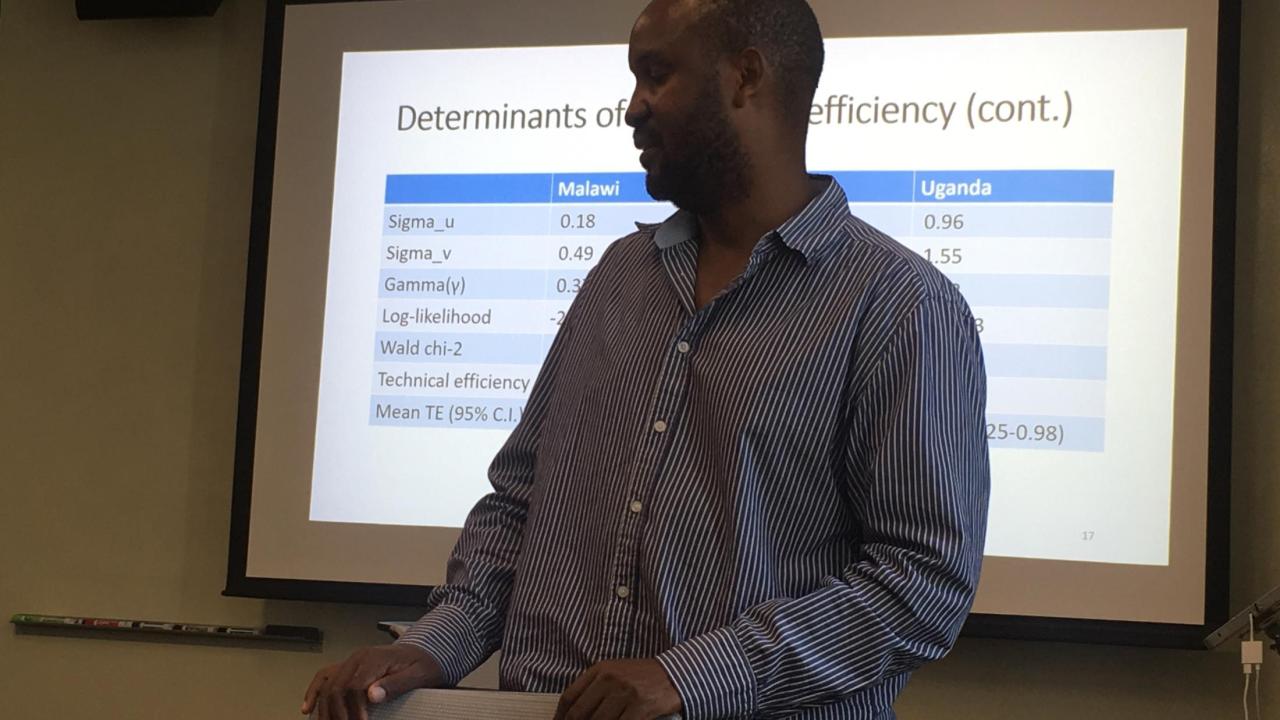
Lab Seminar - Regional socio-economic impacts of cassava whitefly on East and Central African smallholder farmers
Paul Mwebaze presented his research on cassava production in sub-Saharan Africa. A key constraint to cassava production in sub-Saharan Africa (SSA) is the African cassava whitefly. This is a group of at least three cryptic species within Bemisia tabaci (sensu latu) that cause direct damage to cassava and vector cassava-virus diseases. To assess the economic impact of this constraint, Paul and coauthors conducted a comprehensive socio-economic survey to examine cassava production and productivity in Malawi, Tanzania, and Uganda. The primary data for this study were collected from cassava producers using a structured survey questionnaire that was discussed verbally with the individual farmers. A total of 1200 farmers were selected and interviewed using a multi-stage random sampling technique. This is the first study to apply a stochastic production frontier to model the impacts of whitefly pests on productivity of smallholder cassava producersin SSA. They showed that land, labor, and access to clean planting materials positively influenced output of cassava producers. In addition, whitefly pests and diseases were more influential than socio-economic factors such as age, gender, and household size in explaining the technical inefficiency of cassava producers. These findings, therefore, highlight the need for policies to ensure cassava farmers have access to appropriate inputs, especially land, capital, clean planting materials, as well as whitefly and disease management education. These results are useful in designing extension strategies to control whitefly pests.